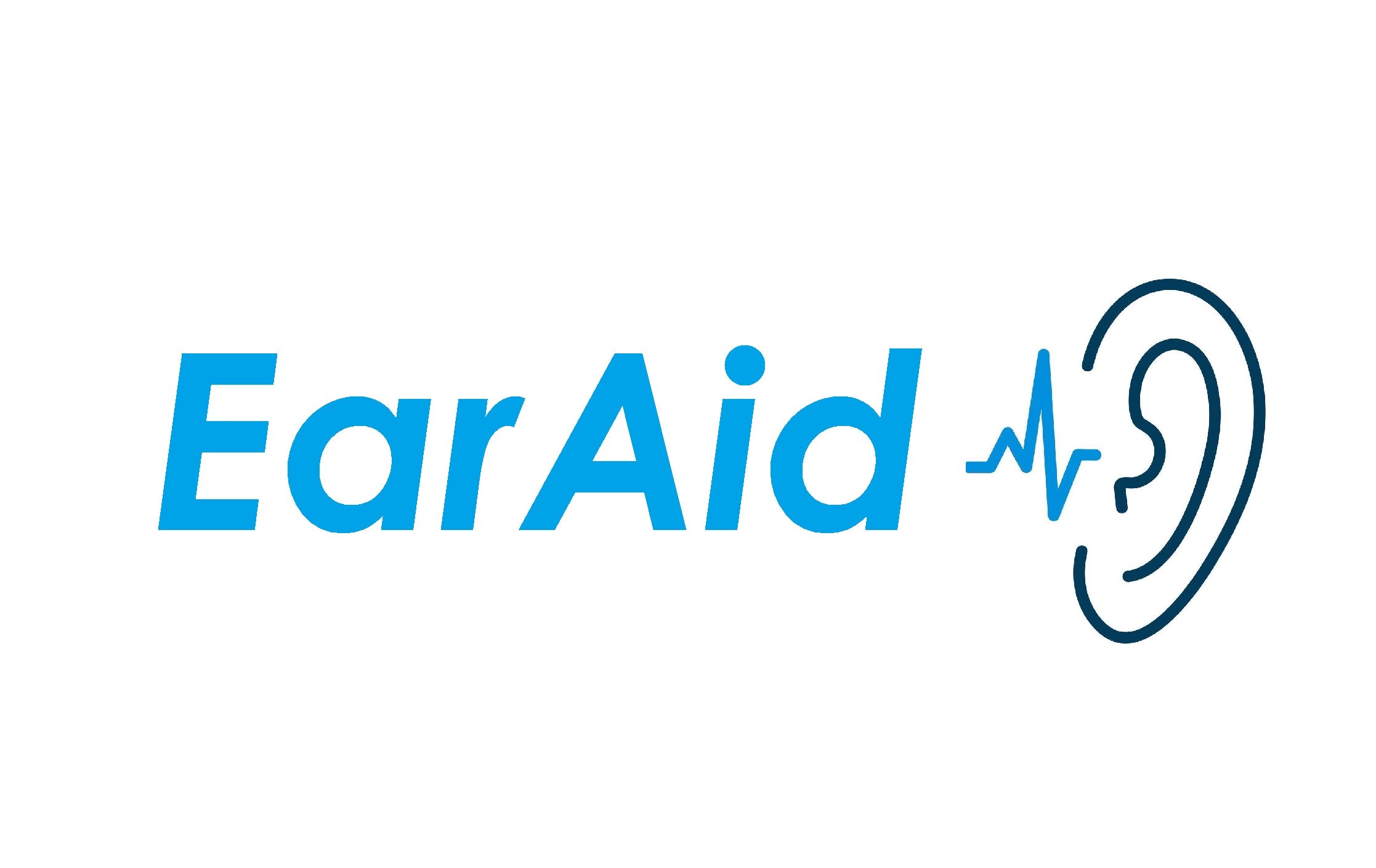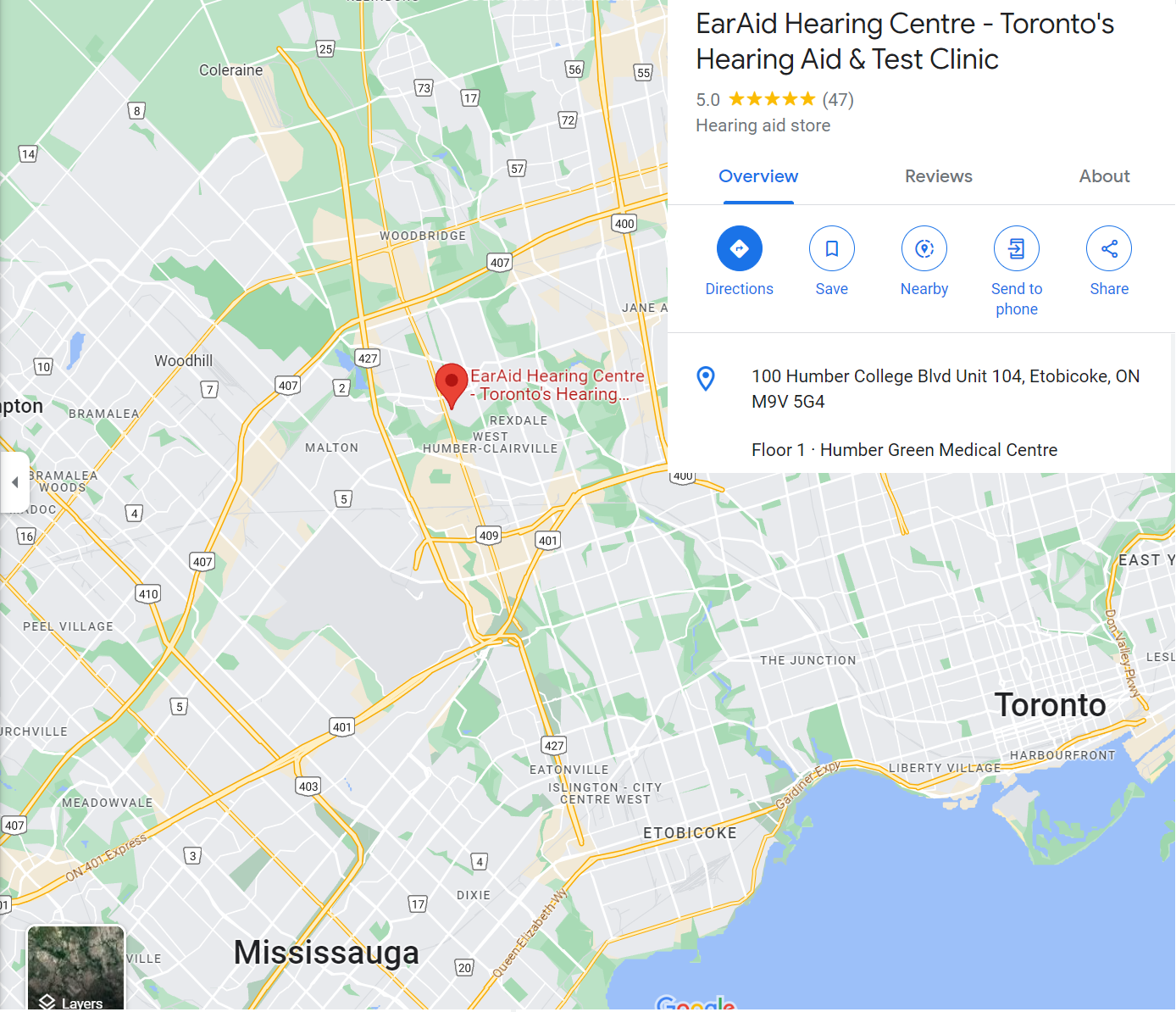
Everything You Need To Know About Invisible Hearing Aids
Are you looking for a discreet hearing aid solution? With the advancement of hearing technology, invisible hearing aids are becoming increasingly popular. These tiny, invisible hearing aids are effective in helping users overcome mild to moderate hearing loss. More severe hearing loss will require consultation to determine whether an invisible hearing aid is the most appropriate option. On this page, we discuss a number of hearing devices that are available from premium brands.
We will introduce you to the best invisible hearing aids, such as the Phonak Lyric, which is designed to stay in the ear for up to several months without removal. Custom hearing aids, such as the Titanium by Phonak, are discreet hearing aid types with lots of technology packed into a tiny-sized hearing aid. These IIC hearing aids (invisible-in-the-canal) make wearing hearing aids virtually invisible. Starkey offers a great option in their Synergy Soundlens IQ hearing aid. And Signia has the newly released Silk X which is a wireless option.
Read on to learn more about these cutting-edge options in the quickly-evolving world of hearing technology.
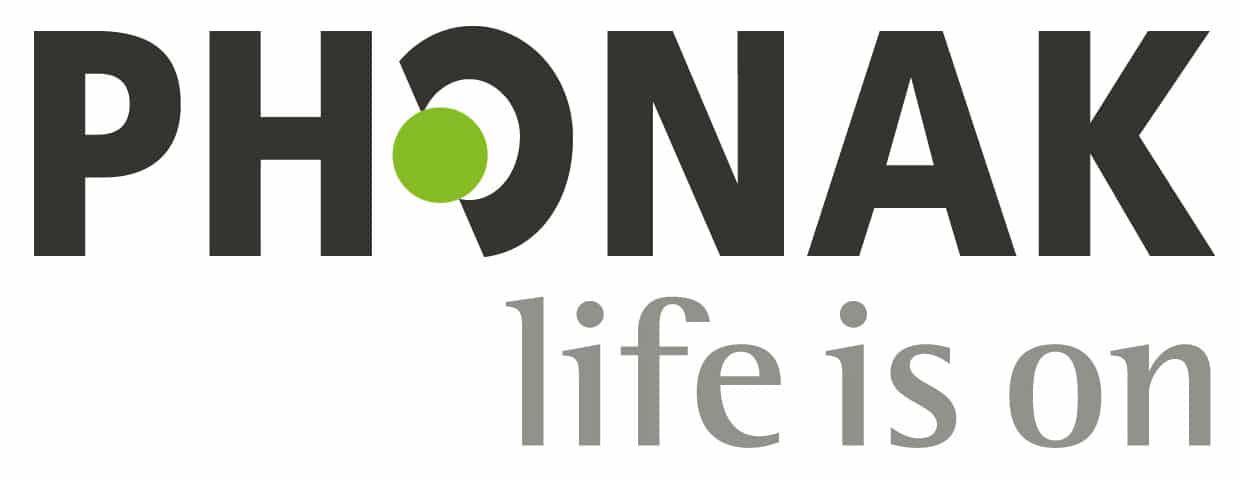
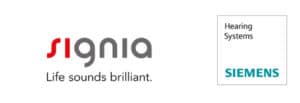






Invisible Hearing Aids
The smallest kind of in-the-ear hearing aids are called Invisible In the Canal style, IIC for short. The idea is that these tiny hearing aids fit so deeply in your ear canal that you cannot see them from the outside. Their tiny size allows them to sit comfortably in the ear canal while still providing good sound quality. Typically people who are concerned about the cosmetic appearance and visibility of hearing aids opt for an IIC style.
For most people, these hearing aids are exactly what the name suggests, invisible. For others, the exact size of the small hearing aids may not be quite as tiny as they wish. The reason for this is that the shape and size of your ear canal will play a big role in how tiny these hearing aids can be made or fitted in your ear. If you have normal ear canal geometry, the most invisible hearing aids will truly live up to their name and appear invisible. No one would notice them in your ear! However, if you have a very narrow, small, and bendy ear canal, the appearance may not be completely invisible.
The exact size and shape of the invisible IIC will depend on the shape of your ear. With the custom-made IIC aids, once a deep ear impression is made of your ear, past the second bend, the manufacturer creates the perfect solution to custom fit your ear.
Today’s technology can offer advanced features. However, if Bluetooth connectivity is important to you, make sure to discuss this with your hearing healthcare provider. Smaller devices have a trade-off of a reduced number of special features, depending on how invisible the hearing aids should be.
For the non-custom IIC aids, you can often demo them right away with your hearing professional and see whether different “sleeves” or dome tips give you the ideal invisible fit. Your type of hearing loss and personal preferences will also influence the most invisible hearing aids that can work for your personal needs.
Looking for your most cosmetically appealing options?
Contact us for answers to all your questions!
– Or –
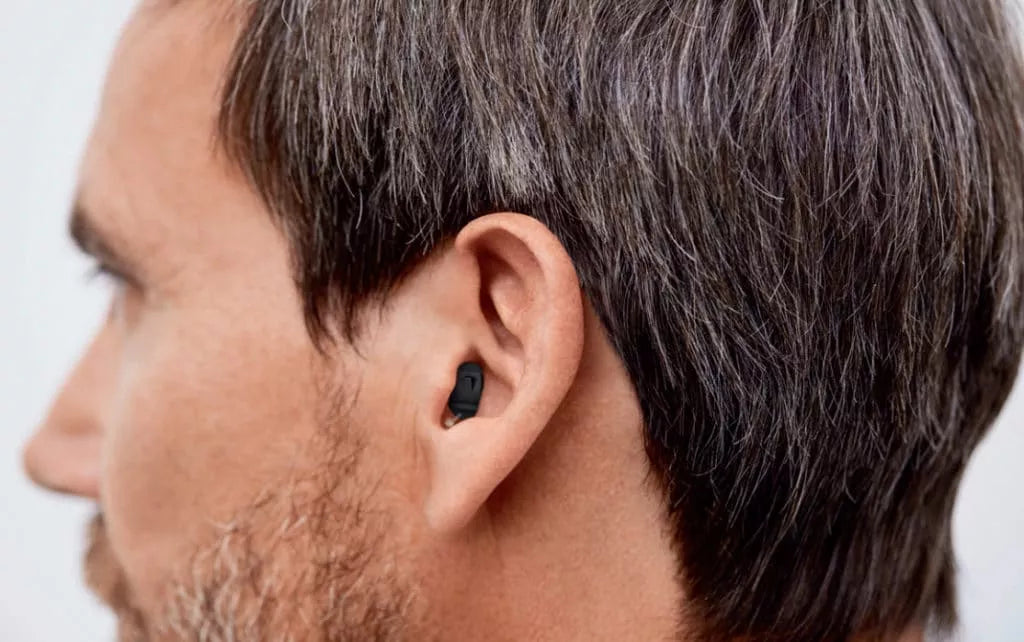
Determining right fit
In regards to the fitting range, most IIC hearing aids will fit anything from a mild to a severe loss. Your hearing professional will check your audiogram and determine if invisible hearing aids work for you.
A severe to profound loss will not be a good fit for the IIC and will be better served with BTE hearing aids. This may depend on how steeply your hearing loss slopes on the audiogram and the size of your ear canal. The reason for this is that the IIC has a limited capacity for output volume at very loud levels, despite adjustments to the aid and the sound settings.
Pushing the IIC to its limits will likely cause you to hear a loud squealing sound, which is referred to as “feedback.” Sometimes the feedback can be resolved through adjustments to your settings. However, there are times when neither of these solutions can be applied for technical reasons. In this case, you may instead be better suited with a Completely in the Canal style aid (CIC). CIC hearing aids are slightly larger but have an increased capacity for volume output.
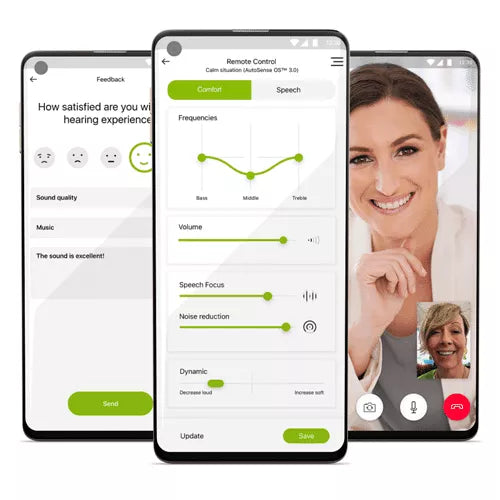
Smartphone App
Some of the IIC aids can be controlled via remote control or an app on your phone. Some of them may even have the option of adding a push button to the faceplate (the part faces the outside of your ear canal), but in doing so it may increase the size and visibility of the aid. You should talk to your hearing professional about your needs for volume control.
Most hearing aids with premium technology can automatically adapt to your environment and create a more natural sound experience for you, so there’s no need to change it manually. For example, these hearing aids can even reduce wind noise.
However, some IIC aids are so tiny that the components for volume control cannot be included in the aid at all. Your hearing care professional can go over which kinds will have this feature.
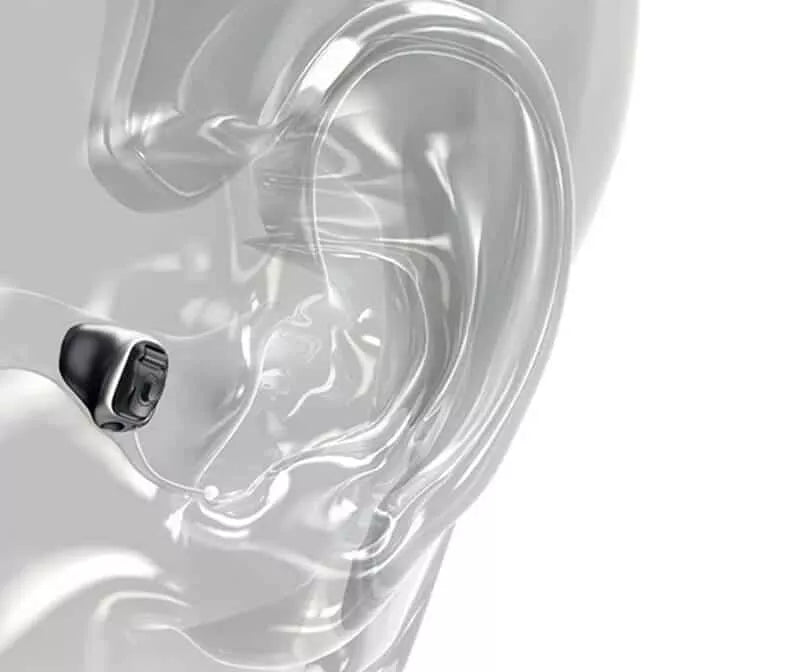
Ear Occlusion
Most custom-made IIC aids may initially cause a different sound when listening to your voice through the devices. This sensation is referred to as “occlusion.” Occlusion typically occurs when a custom aid completely fills up your ear canal, causing a different perception in your ears when you speak.
Depending on the degree and severity of your hearing loss, you may hear more or less of your own voice initially. Occlusion is typically more noticeable in the first few days of you using the hearing aids as your brain is adapting to hearing sounds you haven’t heard in a long time, or even ever! As time goes on, your brain will adapt and adjust to the sound of your own voice. If, after two weeks, you still have not managed to adapt to the sound of your own voice, it’s a good idea to visit your hearing care professional so they can make further adjustments to the hearing aids.
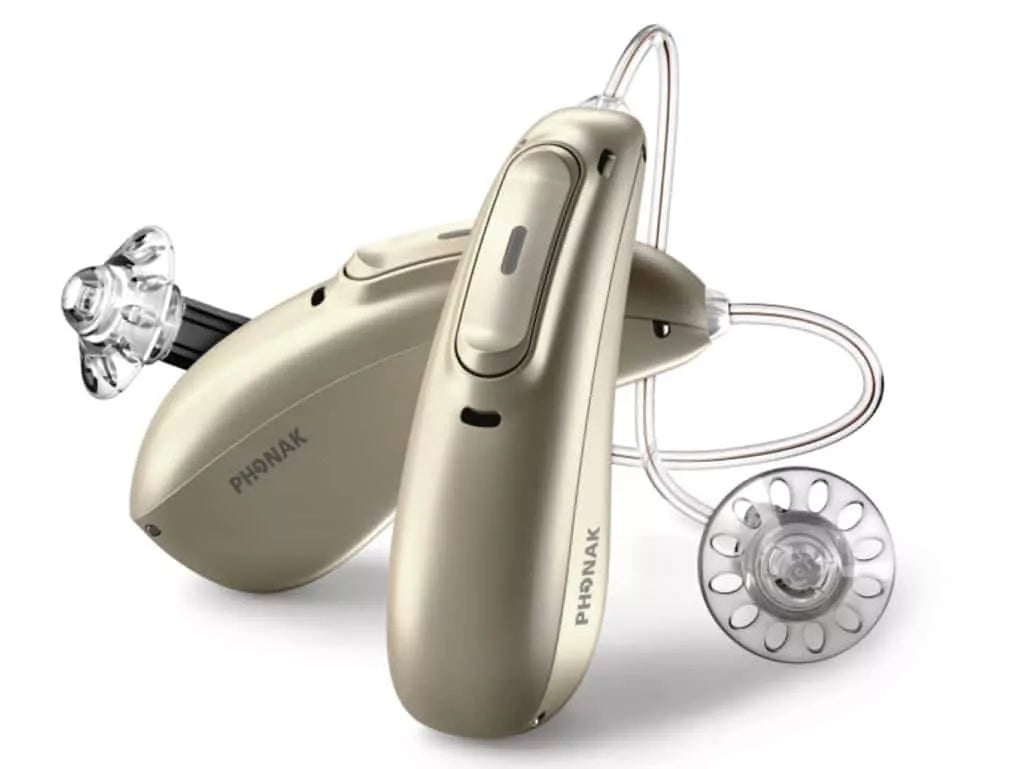
Invisible Vs Open Fit
As a general rule of thumb, any hearing aid or earpiece that completely plugs up your ear canal, like the IIC, is more likely to cause occlusion compared to the “open fit” or behind-the-ear styles of hearing aids. “Open fit” hearing aids refer to the fact that the piece in your ear delivers the sound to the eardrum, minimizing occlusion. It essentially allows your own voice to come through naturally without amplification, giving you a more natural feel.
Additionally, the larger the ventilation hole in your hearing aid, the less occlusion you’ll experience. Sometimes, however, despite the absolute best efforts of hearing professionals to reduce the feeling of occlusion, it may still appear noticeable to the wearer.
In these cases, the user needs to consider whether he or she is willing to trade off a bit of occlusion for a smaller, more invisible hearing aid. Larger hearing aids may provide more enhanced sound quality, depending on your hearing loss level. However, if you cannot handle the occlusion, then your hearing professional will offer other non-occluding options instead, such as the open fit behind-the-ear style hearing aid.
We’d love to talk about the best options for you
Contact us for answers to all your questions!
– Or –

Disposable Invisible Hearing Aids – Lyric
Most hearing aid manufacturers create custom style IIC aids. However, the Phonak Lyric is a completely unique style of IIC in its own class because it goes deeper and appears more invisible than any other IIC aid. The Lyric sits about 3-4 mm away from your eardrum and functions like a disposable hearing aid. This device is available on an annual subscription model.
A specifically trained hearing professional is the only one who can insert this type of aid into your ear. Under no circumstances should you attempt to insert a Lyric hearing aid into your own ear – only your hearing professional is trained to do so. Keep in mind that not all clinicians have experience and training in Lyric insertion, and not all clinics are approved to offer this device.
So you need to make sure that your clinic carries this device and that they have certified Lyric trained clinicians performing this fitting. The Lyric typically lasts anywhere from a few weeks to a few months. The lifespan of the Lyric depends typically on the “climate” of your ear canal. Those with dry and wax free ear canals tend to enjoy longer Lyric lifespans compared to those with a lot of earwax buildup or moisture in their ear canals.
Let’s Explore Some Hearing Aid Options
We’d love to talk about the best options for you
Contact us for answers to all your questions!
– Or –
Factors That Matter To You
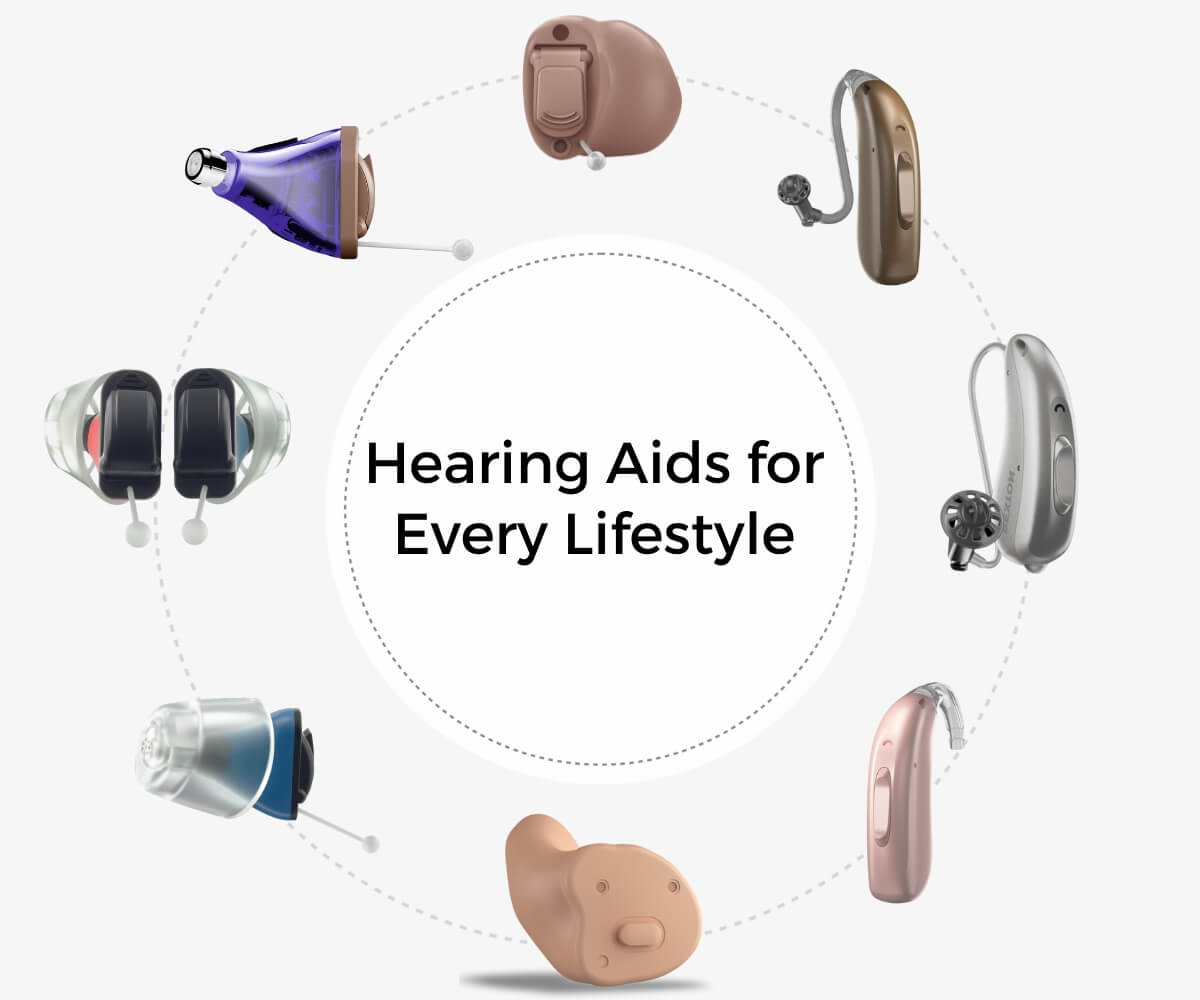
At EarAid you will receive a personalized service plan that meets your specific needs
We offer a selection of hearing aids designed to match your specific needs and budget, ranging from premium to advanced and standard technology options. With every hearing aid purchase, you'll receive a comprehensive package, including our all-inclusive service plan, loss & damage insurance and free support for the life of the hearing aid. Contact us today to explore how we can help you achieve your optimal hearing experience!

2,500+
Clients since 2019

4.9
Stars on Google

2
Locations in GTA
Have Questions?
Call our office if you have any questions about our hearing aids or the process. We are here to answer any questions you may have.


